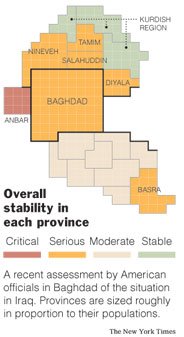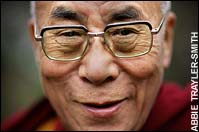Observations of Italy, France and G7 countries in general
The latest news from Italy is that Forza Italia led by Prime Minister Silvio Berlusconi won the upper house, and for the lower house, there is a dead heat between Berlusconi's coalition getting 49.7% of votes and the main opposition leader Romano Prodi's coalition getting 49.8% of votes. If this news prove true, it presents an interesting picture of democracy in G7 countries. Let us recall: U.S. President Bush was reelected with a clear majority with the Republican Party retaining control of both Capitol houses; President Bush has three years left in his term and the Republicans are campaigning to retain Congressional control in November's midterm elections. Japanese Prime Minister Koizumi's Liberal Democratic Party was reelected with a majority control of both houses of the Diet; the prime minister has announced he will retire within a year. British Prime Minister Blair's Labour Party has full control of Parliament amidst persistent rumours that this is the prime minister's last term. At least there is stable government in the U.S., Japan and the U.K. Let's see the other four countries of the G7. Canadian Prime Minister Harper leads a federal government with a parlimentary minority in both the House of Commons and the Senate. German Chancellor Merkel leads a "grand coaltion" government with the former governing party because her own party won a minority in the last election. Well, the situation in Italy remains to be seen: Prime Minister Berlusconi may only win control of the upper house and lost control of the lower house. Finally, there is France. French President Chirac has thirteen months left in his term and has announced he will retire. His party UMP has a majority in the French Parliament. However, President Chirac "caved in" to popular protests to the first meaningful economic reform legislation aimed to increase jobs and loosen restricting hiring conditions. By the way, the youth unemployment rate is 22.2% in France! He withdrew le contrat première embauche (CPE, meaning: first job contract), not because Parliament could not pass the legislation but because two months of protests by students and unions frightened business confidence. Sigh! Remember in Ontario in the 1990s in the face of widespread union protests, the Harris government passed laws to cut taxes and welfare funding and changed labour regulations also aimed at creating better economic conditons for businesses. So, it appears that in France, democracy means one demostrates in protest rallies if one disagrees with the government. And it seems it works--if you want to leave the unions in control limiting the increase of jobs in the marketplace.





